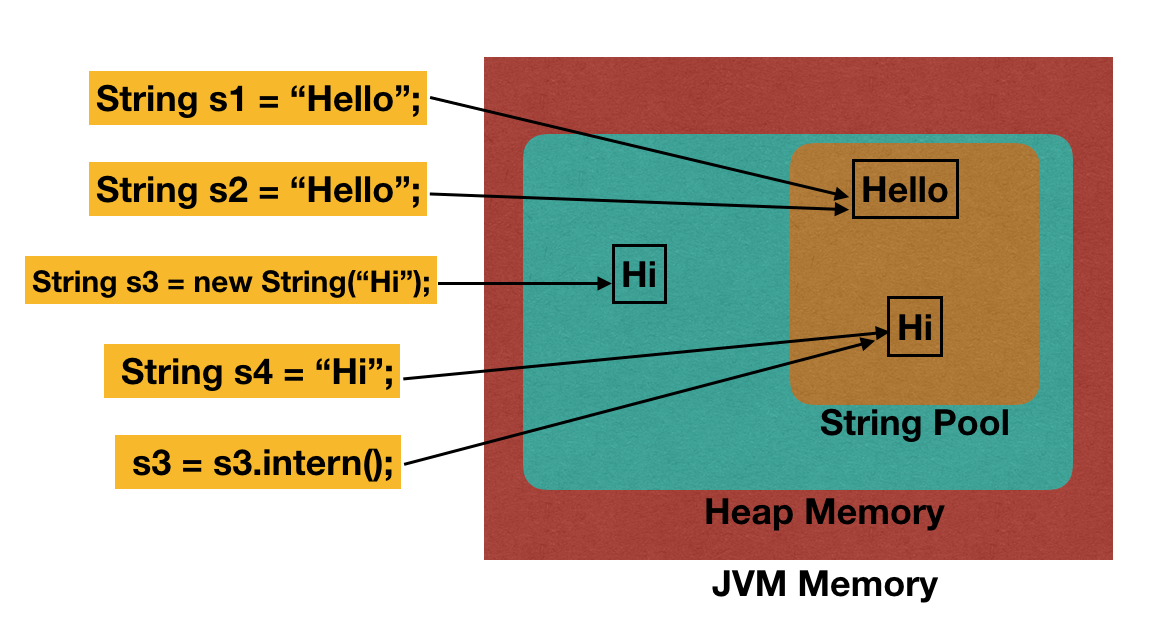Why Are Strings Immutable in Java? Comprehensive Analysis for Programmers
Why Are Strings Immutable in Java? Comprehensive Analysis for Programmers
Blog Article
What Is Immutable Strings and Exactly How It Works
In the world of programming, comprehending the concept of immutable strings is vital for producing safe and durable applications. Immutable strings refer to strings that can not be changed after they are developed, guaranteeing data integrity and predictability within the code.
The Basics of Immutable Strings
Unalterable strings, as a basic concept in programs, are character series that can not be changed as soon as they are created. This implies that once a string is assigned a worth, that worth can not be changed. In languages like Python and Java, strings are immutable objects, resulting in various effects in regards to memory administration and data stability.
One of the vital advantages of immutable strings is that they supply a complacency in information control. Because the content of an unalterable string can not be modified, it ensures that the original information continues to be undamaged, decreasing the danger of unexpected changes during program implementation (Why are strings immutable in Java?). This residential or commercial property also simplifies debugging processes, as designers can trust that once a string is defined, its worth will certainly not be unintentionally modified
Furthermore, unalterable strings help with effective memory use. When a new string is produced based upon an existing one, instead of changing the original string, the new worth is kept independently. This strategy improves efficiency by decreasing memory fragmentation and streamlining memory allotment processes. In general, recognizing the fundamentals of unalterable strings is critical for understanding programming principles and enhancing code efficiency.
Advantages of Immutable Strings
Building upon the safety and effectiveness advantages of immutable strings, their benefits encompass enhancing code reliability and streamlining simultaneous shows jobs. By being unalterable, strings can not be customized after development, which eliminates the threat of unplanned changes in the information they save. This fundamental immutability makes certain that when a string is developed, its worth continues to be constant throughout the program's execution, decreasing the chances of bugs brought on by unforeseen alterations.
Furthermore, immutable strings add to code dependability by making it simpler to reason about the state of a program. Considering that strings can not be altered, programmers can trust that a string will certainly always hold the same worth, simplifying debugging and maintenance efforts. This predictability causes much more reliable and stable codebases.

Implementation in Programming Languages
Within various programs languages, the unification of immutable strings is an essential aspect that influences how information is dealt with and adjusted within code structures. The execution of unalterable strings varies throughout various shows languages, with each language offering its very own mechanisms to support this concept.

In comparison, languages like C and C++ do not have integrated assistance for unalterable strings. Designers in these languages this hyperlink should by hand carry out immutability by enforcing rules within their code to prevent direct modifications to string things.
Finest Practices for Functioning With Immutable Strings
When dealing with immutable strings in programs languages like Java and Python, adhering to best methods guarantees secure and reliable information adjustment. One of the key finest practices is to utilize StringBuilder or StringBuffer instead of directly controling strings, specifically when dealing with extensive concatenation procedures. These courses offer mutable choices for string manipulation, aiding to avoid unneeded memory allowances and enhancing efficiency.
Furthermore, when functioning with delicate data such as passwords or API secrets, it is important to prevent saving them as plain message in unalterable strings. Using protected storage devices like char varieties or specialized libraries for handling sensitive information helps mitigate security risks linked with immutable strings.
Real-world Applications and Instances
Checking out functional executions of unalterable strings in different markets exposes their considerable effect on information honesty and system reliability. In the health care industry, unalterable strings play a critical function in ensuring the safety and privacy of patient information. By preventing unauthorized alterations to sensitive details such as clinical documents and prescriptions, unalterable strings help keep compliance with stringent privacy policies like HIPAA.
Banks additionally take advantage of the immutable nature of strings to boost the protection of client information and deal records. Immutable strings assist stop fraudulence and unapproved alterations to monetary info, giving a durable protection versus cyber risks and ensuring the count on and confidence of customers.

Verdict
To conclude, unalterable strings are dealt with and stable sequences of personalities that provide advantages such as string safety and improved performance in programs. They are implemented in numerous programs languages over at this website to guarantee information honesty and protection. Ideal methods for dealing with unalterable strings include avoiding direct adjustments and utilizing approaches that return brand-new string items. Real-world applications of unalterable strings consist of information file encryption, caching, and string adjustment jobs.
Unalterable strings refer to strings that can not be modified after they are produced, guaranteeing information honesty and predictability within the code. When a look these up new string is created based on an existing one, rather than modifying the original string, the brand-new worth is saved separately.In languages like Java and Python, strings are unalterable by default, suggesting that as soon as a string item is produced, its value can not be transformed - Why are strings immutable in Java?. Best practices for working with immutable strings consist of avoiding direct modifications and using methods that return brand-new string items. Real-world applications of immutable strings include data encryption, caching, and string adjustment tasks
Report this page